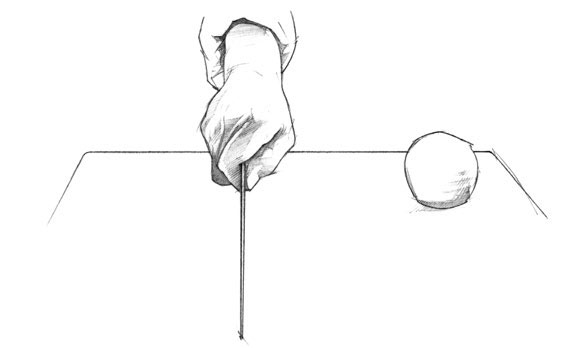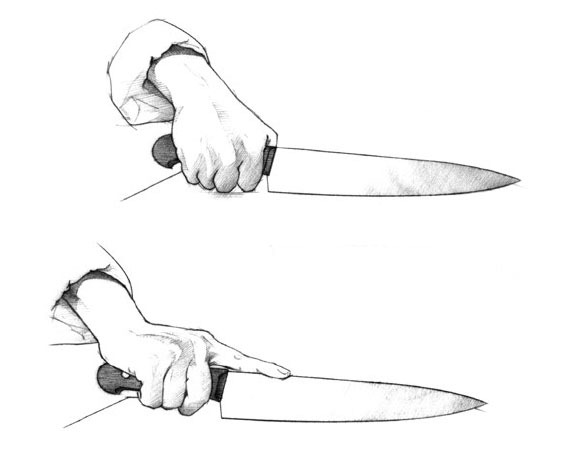How to hold a chef’s knife
While it’s important to be able to cut your food as you want, it’s even more important to do it safely so you’ll end up with as many fingers and thumbs as when you started the day. Remember, you want to cut your food, not your fingers.
Let’s start with the knife hand. The first illustration on the next page shows the correct method; the next two illustrations show comfortable but unsafe ways to hold a knife.
The illustration showing knuckles under the handle highlights two problems. With the knife held this way, your knuckles will hit against the cutting board. This gets painful after a while. The second problem is that holding your knife like this means that you don’t have full lateral control of your knife. This will cause your knife to wiggle from side to side. In the illustration with the index finger extended, you probably won’t hit your knuckles on the board but you’ll still have poor lateral control of the knife. If you are cutting something hard, like a carrot, the knife will probably slip a little. Or a lot.
The illustration with the thumb and forefinger held at the beginning of the blade, almost pinching it, shows how to have complete control of the knife, including lateral control. Not only will this reduce your chances of cutting yourself, but it will also actually require less effort for you to cut the food. That’s because the knife is going exactly where you want it to go while being held firmly, without slipping, in your hand.










